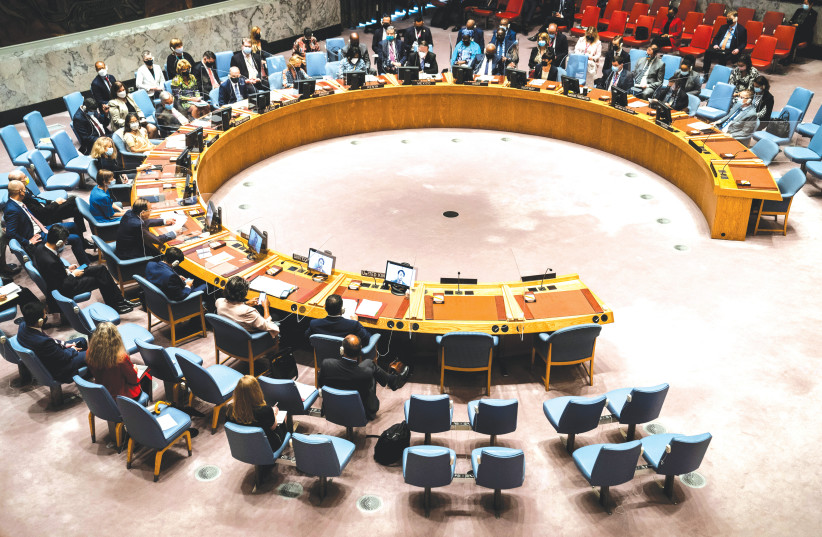US Secretary of State Antony Blinken changed his travel plans at the last minute on Thursday to speak at a United Nations Security Council meeting on Ukraine amid rising tensions over a build-up of Russian troops on Ukraine's borders.
"The evidence on the ground is that Russia is moving toward an imminent invasion. This is a crucial moment," US Ambassador to the United Nations, Linda Thomas-Greenfield, told reporters.
The 15-member Security Council is set to meet to discuss the Minsk agreements, endorsed by the council in 2015, which aim to end an 8-year-long conflict between the Ukrainian army and Russian-backed separatists in the east of the country.
But the meeting comes amid high tensions after the United States accused Russia of deploying some 150,000 troops near Ukraine's borders in recent weeks. Russia says it has no plans to invade Ukraine and accuses the West of hysteria.
Blinken has traveled to the United Nations, on his way to the Munich Security Conference, "to signal our intense commitment to diplomacy, to offer and emphasize the path toward de-escalation, and to make it clear to the world that we are doing everything – everything – we can to prevent a war," Thomas-Greenfield said.

Earlier on Thursday, Russian-backed separatists and Ukrainian government forces traded accusations of firing shells across the ceasefire line in the Donbas region of eastern Ukraine, in what Kyiv said appeared to be a "provocation."
Adding to the friction is a bid by Russia's parliament this week to recognize the separatists in Ukraine's Donetsk and Luhansk regions, which broke away in 2014 and proclaimed themselves independent, sparking the conflict.
Russian President Vladimir Putin has yet to approve Tuesday's request by the Russian parliament, and has declined to say how he will respond.
Ukraine's Ambassador Sergiy Kyslytsya has asked Security Council members to discuss the issue on Thursday, saying it undermined the Minsk agreements and "further aggravated the threats to both Ukraine's territorial integrity."
The UN Security Council has met dozens of times to discuss the Ukraine crisis since Russia annexed Ukraine's Crimea region in 2014. It cannot take any action because Russia is a veto-power along with France, Britain, China and the United States.
